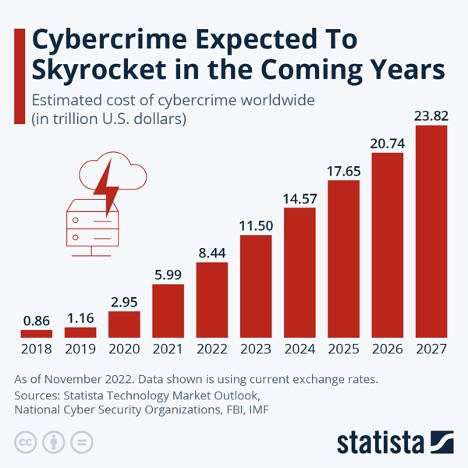On February 9, a significant update was issued by the U.S. Department of Education’s Federal Student Aid (FSA) office. The update pertains to compliance with the Safeguards Rule, a component of the Gramm-Leach-Bliley Act (GLBA) that deals with customer records, information security, and confidentiality. The GLBA, as described by the Federal Trade Commission (FTC), sets out to provide a robust framework for financial institutions to protect their customers’ personal data.
The GLBA applies to institutions of higher education that engage in financial activities such as providing student loans or banking services. Non-compliance with GLBA regulations may lead to the loss of eligibility for federal funding, potentially impacting the institution’s ability to offer financial aid to students. Non-compliance with GLBA regulations may lead to the loss of eligibility for federal funding, potentially affecting the institution’s ability to provide financial assistance to students.
The notice from the FSA emphasized the FTC’s decision to bring the revised Safeguards Rule into effect from June 9, 2023. The update outlines the major points of the Safeguards Rule following modifications made by the FTC in December 2021, highlighting FSA’s expectations for compliance.
A critical aspect of the announcement lies in how it applies the GLBA-defined term “customer information” to higher education, the domain of FSA’s oversight. “Customer information,” as defined under the GLBA, refers to data obtained during the provision of financial services to a student, whether current or past. The scope of financial assistance can include administering Title IV programs, offering institutional loans, including income share agreements, or servicing a private education loan for a student.
The FSA notice zeroes in on two main provisions of the revised Safeguards Rule, set to become effective in June:
- The requirement for institutions to encrypt customer data both at rest within institutional systems and during transmission across external networks.
- The mandate for multi-factor authentication (MFA) for anyone accessing customer information via institutional systems.
These provisions underscore the FSA’s commitment to enhancing data security and privacy within higher education institutions. However, the notice also alludes to some uncertainties in the enforcement process for Safeguards Rule compliance. It mentions that the FSA will resolve compliance issues linked to the new Safeguards Rule provisions once they come into effect, primarily through institutional Corrective Action Plans (CAPs). It doesn’t clarify what “other means” could lead to a compliance investigation nor provides any framework for the CAPs that institutions need to create and execute.
The reference to “other means” may stir apprehension, echoing a situation years ago when an FSA official sent compliance notices based on media reports of alleged cybersecurity incidents. This necessitates clear communication from the FSA regarding potential triggers for compliance investigations, apart from federal single audit findings.
Concluding the notice, FSA reinforces the importance of institutions adopting the NIST SP 800-171 cybersecurity guidelines concerning federal student financial aid data. The federal government’s controlled unclassified information (CUI) regulations will soon mandate institutional compliance with NIST SP 800-171.
As these changes unfold, CAG is committed to closely collaborating with community members to ensure that FSA’s guidance and enforcement adequately address the regulations and compliance areas.
Where can I find more information? For additional information, see FSA’s electronic announcement: Updates to the Gramm-Leach-Bliley Act Cybersecurity Requirements. If you have questions regarding the Department of Education’s enforcement of GLBA, please get in touch with FSA_IHECyberCompliance@ed.gov. More information is also available on the Federal Trade Commission’s website. Updates to the Gramm-Leach-Bliley Act Cybersecurity Requirements | Knowledge Center
About Columbia Advisory Group:
Columbia Advisory Group (CAG) is a leading Information Technology (IT) consulting firm. CAG’s team has assessed and helped improve the performance of more than 300 technology organizations and IT departments, including many higher education institutions, state agencies, and Fortune 50 customers. Practice specialty areas include Infrastructure, IT Service Management, Cybersecurity, and A/V Services. CAG improves business outcomes with IT insights and expert technical support. Based in Dallas, Texas, CAG works extensively with clients throughout the U.S. Contact us at info@columbiaadvisory.com.




